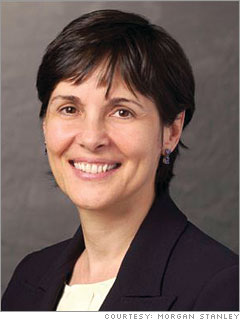“Mandy Mannix, managing director and global head of capital solutions, scooped the inaugural award for achievement from Women in the City”
As well as building the capital solutions business for Lehman Brothers in Europe on a global level, which involves sourcing new capital for hedge funds, Mannix has recently been appointed co-head of €-WILL, Lehman Brothers' women's network.
Mannix said she was pleased that the award would help her mentor other women, which she believes is crucial. She said: "It gives me an even greater platform to reach other talented females across the industry. I am very pleased to have the opportunity to extend my own professional knowledge through the educational aspect of this award. I believe that mentoring plays an essential role in both career development and professional growth."
Source: e-financials Read More......

